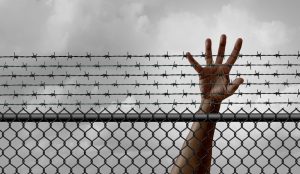Grief while universal to humanity is expressed differently across cultures. Latino Americans due to their own unique culture, family structures, spiritualty and life values can face grief and cope with it in different ways. They also face different internal and external stressors than can complicate the grieving process.
The fastest growing minority group within the United States are Latino Americans (Pedersen, 2018, p. 164). Hence counselors are very likely to come into contact with the Latino American communities which are comprised of multiple different locations comprised of Hispanic mixtures ranging from the Mexico to the Caribbean islands such as Puerto Rico and Cuba to Central America throughout South America. All of these Latino ethnic groups share a common heritage but also a very diverse one in regards to the differing nations and local traditions. Most of these groups will stem from deeply religious groups with Roman Catholicism being the dominant faith, with other Protestant denominations existing within the population due to Protestant missions to Latin America as well as exposure to the United States and its many non-denominational faiths.

When helping these populations with grief, Grief Counselors need to have a larger understanding of their struggles, social needs and norms, and need for family ties. In particular, Grief Counselors who are also Grief Diversity Specialists can play a key role.
Latino Americans and the Importance of Family as Structure
Latino Americans have strong family ties (Pederson, 2018, p. 176). Individualism is replaced with a collective need to work together and cooperate instead of competition. The needs of the family and respect of the family is key. This leads to a deep sense of commitment and also obligation to family needs before one’s own needs. Caretaking and protecting of family in times of distress and illness are calls to action which brings the family unit together. Family events, birthdays, holidays and deaths are more emphasized and prioritized as a time of coming together in happiness and sorrow and sharing of life and death. The family dynamic is hence critical to the emotional and mental health of many Latino-Americans.
Within the family unit, there are also extensions to friends and non blood relatives, such as god parents, best friends or individuals who share special roles within the family dynamic. Elders are given maximum respect, while children are expected to be obedient and respectful. Men are expected to display strong machismo typo characteristics that provide for the family while women are expected to be submissive, nurturing and self-sacrificing for the needs of the family. There does exist some forms of emancipated women where Latino women are more liberated and provide for the family as well, so again, over generalization can be counter productive because diversity still exists within any family dynamic. Also, while exploring the need of family over individual, Latino Americans still have a sense of cultivating individualism of inner qualities that build towards self worth. This is tied greatly to their very spiritual and religious backgrounds that mold many of them in their daily lives.
External and Internal Challenges that Affect Grief and Loss in Latino Americans
Latinos in America deal with a variety of external and internal challenges that can affect grief and loss in their lives. According to Pedersen, Latinos face racism, segregation, discrimination, poverty, significant educational disadvantages and immigration trauma. Issues dealing with fitting in and acculturation also can become stressors and factors for some. These issues can lead a variety of internal and external stressors that can cause distress to many Latinos, whether born in the United States or immigrated to it. Some may arrive illegally and have a constant stress of being deported, while others deal with the disconnection from the family at home. Those who are alone in the United States can suffer greatly without the importance of the family structure to help them cope with daily stressors or losses. This fear leads to the immigrant in possibly never seeing his or her family again and pushes him/her to find new surrogate families or find local Latino American communities to find commonality.

With internal strife and fear, and external factors such as poverty or racism, the need for counseling among many Latino Americans is necessary but many refuse to look for external helps outside the family structure, or if male, feel it as a sign of weakness to seek state services.
Counseling with Latino Americans
Obviously the diversity of Latino Americans prevents one sole solution for all. Some Latino Americans are second generation and fully acculturated. Some may be partially acculturated in public but have a very strong sense of culture at home. Of course, acculturation is the term to describe when two cultures come into first contact and when the primary ethnicity of the person adjusts to the new dominantly present culture (Pederson, 2018. p. 174). When acculturation presents itself to isolated immigrants or those with strong cultural identities, this can lead to issues with mental health (Pederson, 2018, p. 174). Grief Counselors need to take into account the degree of acculturation has occurred for different individuals. When dealing with any minority group, it is critical to identify a three dimensional model in which the first reviews acculturation degree, the locus of the problem and the goals for helping (Pedersen, 2018, p. 176).
In the case of Latino Americans, this may involve an indepth inquiry about the nature of the Latino Americans life history. Is the Latino client born in the United States, a legal or illegal immigrant as well as his/her family support systems? Is the Latino client alone or does the Latino client with family? Is the Latino client a male and displaying traditional macho behaviors that may hurt the healing process, or is the Latino client a woman displaying overtly submissive behaviors? All of these issues can affect grief from internal and external pressures in how one can cope with a loss or deal with a stressor. One can definitely not dismiss the role of racism and prejudice that many Latino Americans also face which can complicate grieving. According to Pedersen, any minority or immigrant is more than likely to experience some form of racism (2018, P. 174).
Finally, it is sometimes difficult to convince Latino Americans about the credibility of the counseling process (Pederson, 2018, p. 175). This can be partly due to the Latino attitude of utilizing family support to deal with emotional and mental issues as well as avoiding including strangers into their problems. Many Latinos utilize spirituality and family strength as a source to cope and find resilience (Pedersen, 2018, p. 176). With this understanding, counselors should utilize family when available as well as spiritual resources to help Latinos sometimes face issues. Family support in counseling can play a large difference in outcomes.
Conclusion

Without overtly over-generalizing in light of different individuals, one can basically state that most Latino Americans are spiritual, family based, and value centered individuals. As an ethnic minority, all face racism to some extent, while immigrants face an even tougher uphill battle that sometimes involves isolation from family or illegally present, fear of deportation. With such strong family ties and certain emotional grieving patterns, outside counseling can sometimes be difficult but grief counselors need to remember the various internal and external issues they face to better understand their grief and help them better cope. Utilizing spirituality and family ties, if present, can be useful tools in helping Latino Americans in counseling.
Please also review AIHCP’s Grief Counseling Certification, as well as its Grief Diversity Specialist Program for already certified Grief Counselors. The programs are online and independent study and open to qualified professionals seeking a four year certification.
References
McGoldrick, M., Giordano, J., & Garcia-Preto, N. (Eds.) (2005). Ethnicity and family therapy (3rd ed.). New York: Guilford Press.
Schwarzbaum, S. E., & Thomas, A. J. (2008). Dimensions of multicultural counseling. Los Angeles: Sage Publications.
Sue, D. W., & Sue, D. (2003). Counseling the culturally diverse: Theory and practice (4th ed.). New York: John Wiley and Sons.
Additional Online Resources
Fortuna, L. “Working with Latino/a and Hispanic Patients”. APA. Access here
Benton, E (2023). “8 Mental Health Resources for the Latino Community”. Very Well Mind. Access here
Mental Health Disparities: Hispanics and Latinos. APA. Access here
Hari, L, et, al. (2020). “Mental Health Needs of an Emerging Latino Community”. J. BehavHealth Serv Res. 2020; 47(3): 388–398. Published online 2020 Jan 30. doi: 10.1007/s11414-020-09688-3. National Library of Medicine. Access here
Overcoming Mental Health Stigma in the Latino Community (2017). Cleveland Clinic. Access here
